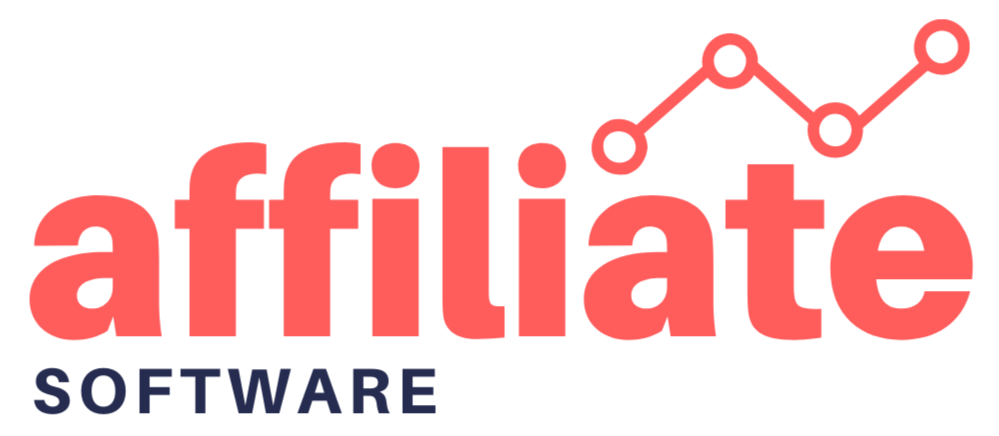Want to boost your accounting biz? Learn how I set up a killer CPA referral program that’ll have clients flocking to your door. Get ready to crunch numbers and rake in the referrals!
How to Set up an Accountant (CPA) Referral Marketing Program
Are you an accountant finding it tough to draw in new clients in a saturated market? The key to rapid growth might be in the strength of referrals. Picture your happy clients acting as your biggest advocates, bringing in a consistent flow of new business. That’s the essence of the Accountant Referral Program, a strategy designed for CPAs aiming to broaden their client roster.
Recent figures show that a well-structured accountant referral program can significantly expand a firm’s reach and draw in new clients. Indeed, people are more inclined to try services recommended by friends, highlighting the program’s value. Moreover, referred clients often turn into long-term, devoted clients, thanks to the trust fostered through the referral.
What’s more, referral programs for accountants are notably more economical in acquiring new clients than traditional marketing tactics. These referred clients even develop a sense of ownership, actively promoting the firm and aiding in its prosperity.
Introduction: Leveraging the Power of Referrals
As an accountant, I’ve seen the profound effect of referral marketing. It’s a strategy that can elevate your firm significantly, building trust, loyalty, and steady growth. By harnessing the power of word-of-mouth, you can open doors to numerous opportunities for acquiring and retaining clients.
Referral marketing, or word-of-mouth marketing, relies on your current clients’ trust and influence. When they recommend your services to their networks, they act as powerful brand ambassadors. This not only enhances your reputation but also brings in leads that are more inclined to become long-term clients.
The advantages of a robust referral program for accountants are vast. Referred clients tend to have higher conversion rates and a greater lifetime value than those found through traditional marketing. Additionally, this approach is economical, as it usually involves minimal costs. People trust recommendations from those they know and respect, highlighting the high trust factor in referrals.
| Key Benefits of Referral Marketing | Statistics |
|---|---|
| Higher Conversion Rates | Referred clients are often pre-qualified and have higher conversion rates into long-term clients compared to clients acquired through other marketing methods. |
| Cost-Effective Strategy | Referral marketing is a cost-effective strategy as it typically incurs minimal associated costs when compared to traditional marketing approaches. |
| Enhanced Client Trust | Clients are more likely to trust recommendations from people they know and respect, indicating a high trust factor associated with referrals. |
By harnessing referral power, accounting firms can significantly grow, build trust, and cultivate loyalty among clients. Next, we’ll explore strategies and best practices for a successful referral program in accounting.
The Benefits of an Accountant Referral Program
Creating a robust accountant referral program brings significant advantages to your accounting business. Referrals from content clients bring a built-in trust, making new clients more likely to choose your firm. These referrals often turn into long-term, loyal clients, boosting your firm’s growth and client retention.
Furthermore, referral programs are a significantly cost-effective way to gain new clients, outperforming traditional marketing strategies. Research indicates that referred clients tend to be more valuable over time, enhancing your firm’s profitability and return on investment (ROI).
Referral programs also facilitate the expansion of your professional network and elevate your firm’s brand visibility in your target market. By leveraging your current client base, you can reach a broader audience, paving the way for sustained growth and success in your accounting practice.
Designing Your Own Accountant Referral Program
Creating a successful accountant referral program requires pinpointing your target audience. Whether you’re targeting new clients or enhancing ties with current ones, grasping their needs and preferences is vital. Establish SMART goals for your referral program, aiming for a 20% increase in customer base or a 15% rise in conversion rate.
A streamlined referral process is essential for motivating your clients and professional contacts to promote your services. Ensure they can easily share your details, via a straightforward one-click referral form or a shareable link on your site.
When contemplating incentives, consider a blend of monetary rewards, such as discounts or cash back, and non-monetary rewards, like exclusive financial webinars or bespoke client gifts. Your referral program should harmonize with your broader customer lifetime value strategy.
It’s imperative to monitor the efficacy of your referral program. Keep an eye on referral metrics like the number of successful referrals, the conversion rate of referred leads, and the lifetime value of your referred clients. This information will enable you to refine your strategy and leverage your accountant referral program effectively.
Through meticulous design and evaluation of your referral program, you can significantly enhance its influence on your accounting business. This approach will foster a robust, enduring growth strategy.
Promoting Your Accountant Referral Program Effectively
Promoting your accountant referral program is key to its success. To boost its impact, keep the process straightforward, offer attractive incentives, and utilize social media to connect with your clients. Establish clear objectives, like increasing referrals or enhancing conversion rates, and monitor key metrics to gauge progress. Adjust your strategies based on performance to refine your referral program and enhance your accounting business outcomes.
Ensuring the referral process is straightforward for your clients is vital. Personalized emails tend to resonate more, making clients feel appreciated and more likely to refer others. It’s crucial to time your outreach well, targeting clients immediately after a successful engagement when they are most likely to offer positive referrals.
Monitoring metrics such as conversion rates and the financial benefits of referral business is crucial to gauge your promotion strategy’s effectiveness. A Net Promoter Score (NPS) system can be invaluable, measuring client satisfaction and evaluating your referral program’s success.
| Metric | Importance |
|---|---|
| Conversion Rates | Determine the effectiveness of turning referral leads into paying clients |
| New Fees Gained vs. Fees Lost | Understand the financial impact of referral business |
| Net Promoter Score (NPS) | Measure client satisfaction and assess the success of the referral strategy |
By adhering to these best practices and refining your strategies, you can significantly increase referrals, enhance conversion rates, and elevate your accounting firm’s success.
Ensuring Regulatory Compliance in Your cpa referral program
Regulatory compliance is vital for a successful accountant referral program. It’s essential to grasp the rules on compensation, disclosure, and ethical considerations. These rules are in place to ensure fairness and transparency.
A notable case illustrates the dangers of not following these rules. A CPA firm recommended a senior associate to a client, but the associate didn’t meet his obligations. This led to penalties for the client and the firm lost the client and a lot of fees.
To avoid such issues, accounting professionals must delve into the rules set by governing bodies like the AICPA. The “Commissions and Referral Fees Rule” prohibits commissions on referrals for certain attest services. Including a disclaimer about referrals can also help protect CPAs when they recommend other services to clients.
Rule 503 of the AICPA Code of Professional Conduct mandates disclosure of any commissions or referral fees CPAs receive. While CPAs often recommend other professionals to clients, they must be careful to avoid conflicts of interest or ethical breaches.
To keep your CPA referral program compliant and ethical, consider the following steps:
- Perform background checks on referred professionals
- Advise clients to seek independent financial advice
- Clearly define the scope of services in writing
- Avoid receiving commissions for referrals to clients receiving accounting services
Following these rules ensures your referral program is legal and ethical. This approach sets the stage for its success and longevity.
Leveraging Technology for Referral Tracking and Automation
In today’s digital era, accounting firms can leverage technology to streamline their referral programs. This enables them to track the origin of each referral effortlessly. Such technology allows firms to measure their efforts’ success and adjust accordingly.
Automated referral links are a significant advancement, tracing every referral back to its source. This visibility helps firms analyze their referral program’s performance. It also allows for optimizing it. Furthermore, referral software automates the distribution of rewards, removing the need for manual processing. This ensures a smooth experience for both the referrer and the referred.
| Feature | Benefit |
|---|---|
| Referral Tracking Software | Identify the source of each referral, measure program success, and make informed adjustments |
| Automated Referral Links | Trace referrals back to their origin, enabling data-driven program optimization |
| Automated Reward Distribution | Streamline the reward process, enhancing the overall referral experience |
| Referral Program Analytics | Gain valuable insights to measure the success and effectiveness of the referral program |
By embracing the latest technology, accounting firms can fully exploit their referral programs. This leads to consistent growth and a robust network of loyal clients and referral partners.
Incentivizing Referrals: Best Practices for Rewards
Creating a successful referral program demands strategic incentives that motivate both current and new clients. A dual-sided approach encourages active participation from all, enhancing the referral process. This strategy leads to a robust referral pipeline.
Swiftly rewarding new clients is crucial for reinforcing the desired behavior. Acknowledge the referring customer’s effort with immediate rewards, like cash or gift cards. This approach sustains the momentum of sharing.
Rewards can vary from cash-equivalent gift cards to experiential prizes like concert tickets or sports events. For firms offering recurring services, rewarding the referrer for the friend’s ongoing enrollment builds lasting loyalty.
| Reward Type | Advantages | Disadvantages |
|---|---|---|
| Cash Referrals | – Straightforward and universally appealing – Can be easily tracked and automated |
– May not create a lasting impression |
| Gift Cards | – Offer flexibility and choice for the recipient – Can be tailored to individual preferences |
– Require more administrative effort to distribute |
| Experiential Rewards | – Create memorable experiences and strengthen brand affinity – Can be more engaging and impactful than cash |
– May be more challenging to scale and automate |
| Recurring Service Rewards | – Incentivize long-term customer relationships – Demonstrate ongoing appreciation for referral partners |
– Require careful tracking and management of client status |
It’s essential to strike the right balance in incentives that resonate with your firm’s objectives, client tastes, and regulatory requirements. A well-thought-out referral rewards program can foster sustained engagement and amplify the impact of word-of-mouth marketing.
Aligning Your Referral Program with the Accounting Calendar
As an accountant, I’ve learned the strength of referral marketing in boosting client acquisition and loyalty. Aligning your referral program with the accounting calendar can significantly enhance results. It’s about leveraging the specific needs and behaviors of clients throughout the year.
Consider tax season, a peak time for referral incentives and growth. Clients who’ve had a positive experience with your services are more inclined to recommend you, especially while preparing taxes. By designing seasonal referral promotions for this period, you can leverage word-of-mouth and capitalize on the increased awareness of tax services.
However, it’s not limited to tax season. A strategic referral program alignment should span the entire accounting calendar. Offering exclusive discounts or bonuses for referrals in the slower summer months, or intensifying your tax season referrals campaign near year-end, can be effective. The essence is to be adaptable and responsive to industry fluctuations.
Integrating your referral program with the accounting calendar makes it more relevant and attractive to clients. It also positions your firm as a reliable and adaptable partner. Let’s explore and enhance your referral strategy, ensuring it harmonizes with the accounting world’s rhythms.
Measuring the Success of Your Accountant Referral Program
As an accountant, I understand the significance of evaluating your referral program’s success. It’s crucial to know what strategies are effective and which ones need improvement. That’s why I’ve crafted a reliable method to assess your referral program’s ROI.
Start by examining the net profit from your referral marketing and the program’s operational costs. Utilize software and tools that provide comprehensive referral tracking. This allows you to monitor key metrics such as referral rate, conversion rate, customer lifetime value (CLTV), and cost per acquisition (CPA).
| Metric | Benchmark | What it Means |
|---|---|---|
| Referral Rate | 15-30% | The percentage of customers or partners who refer others to your business. |
| Conversion Rate | 5-10% (average), 11-20% (good), 21%+ (excellent) | The percentage of referred users who actually become customers. |
| CLTV | N/A | The projected revenue generated by a referred customer throughout their relationship with your firm. |
| CPA | N/A | The average cost of acquiring a new customer through your referral program. |
By keeping an eye on these metrics, you can refine your program for better outcomes. It’s essential to understand what succeeds and what doesn’t. This knowledge guides you in making informed decisions to enhance your referral program’s ROI.
Conclusion
In the dynamic realm of business, finding new ways to draw in clients and keep the ones you have is crucial. An accountant referral program stands out as a powerful tool for this purpose. It helps accounting firms grow by leveraging the strength of word-of-mouth. This approach not only expands your reach but also builds trust and credibility. For both new and established firms, a well-thought-out referral program can significantly boost growth and secure your place in a competitive market.
The advantages of referral programs are clear, offering more clients and cutting marketing expenses. By providing incentives and streamlining the referral process, you can create a steady flow of quality referrals. This, in turn, can elevate your accounting business. Additionally, using technology and data can refine your referral strategies, amplifying their effectiveness.
Starting or enhancing your accountant referral program requires a focus on consistency, creativity, and a customer-first mindset. Keep an eye on your clients’ evolving needs and adjust your incentives and promotions accordingly. Regularly assess your program’s performance. With a strategic approach, your accounting firm can achieve sustained growth and establish itself as a reliable, client-centered service provider.



Leave a Comment